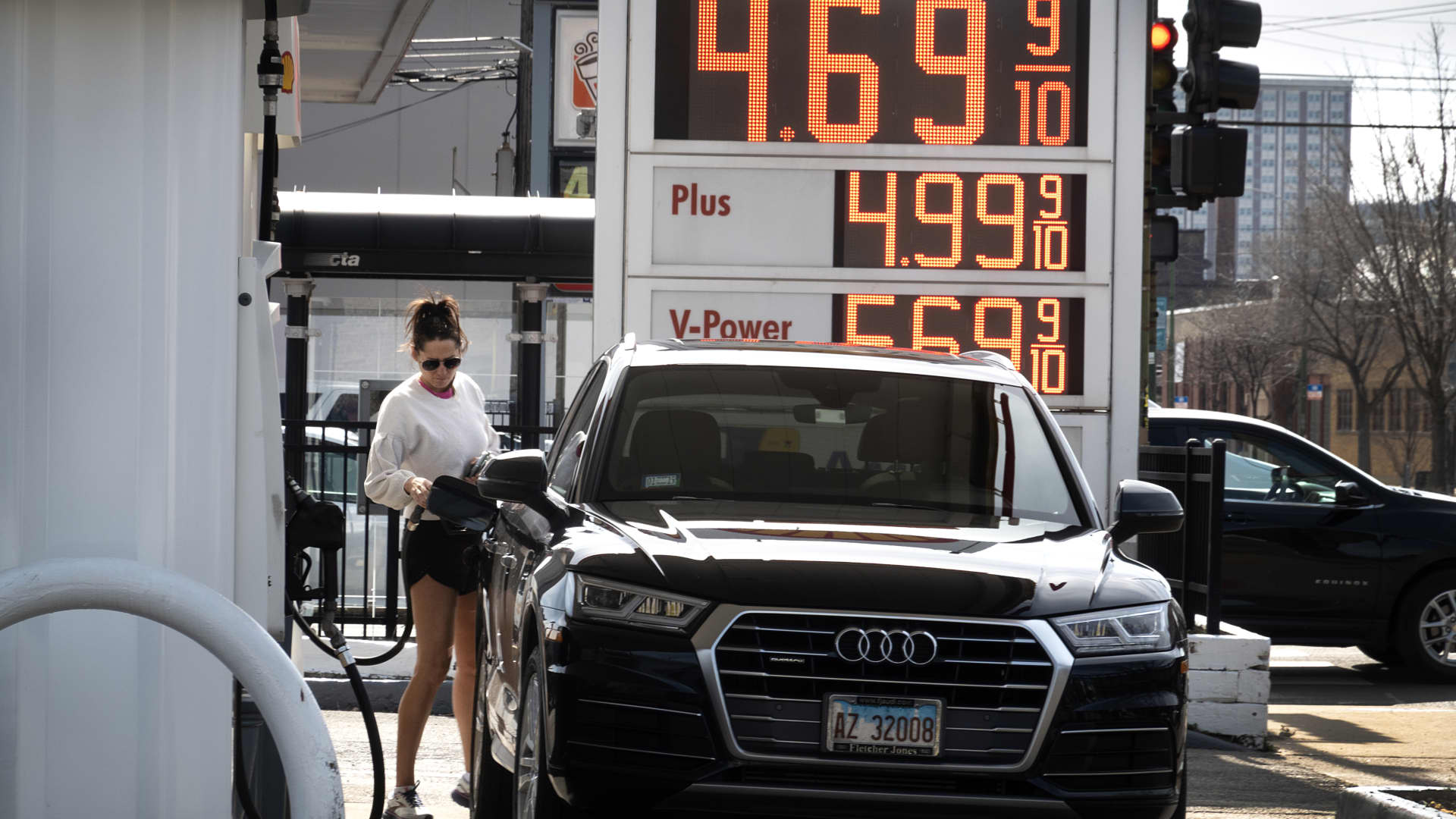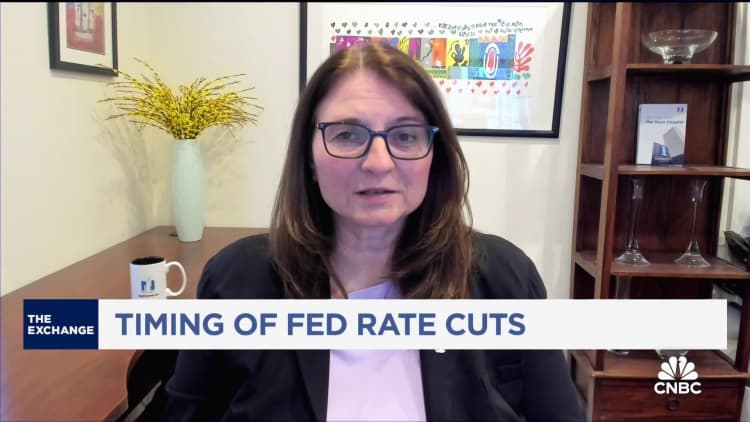Gas prices are displayed at a gas station on March 12, 2024 in Chicago, Illinois.
Scott Olson | Getty Images
From consumer and wholesale prices to longer-term public expectations, reports this week served up multiple reminders this week that inflation isn’t going away anytime soon.
Data across the board showed pressures increasing at a faster-than-expected pace, causing concern that inflation could be more durable than policymakers had anticipated.
The bad news began Monday when a New York Federal Reserve survey showed the consumer expectations over the longer term had accelerated in February. It continued Tuesday with news that consumer prices rose 3.2% from a year ago, and then culminated Thursday with a release indicating that pipeline pressures at the wholesale level also are heating up.
Those reports will provide a lot for the Fed to think about when it convenes Tuesday for a two-day policy meeting where it will decide on the current level of interest rates and offer an updated look on where it sees things heading longer term.
“If the data keep rolling in like this, it becomes increasingly difficult to justify a pre-emptive rate cut,” wrote Steven Blitz, chief U.S. economist at TS Lombard. Taken together, the numbers show “the great disinflation has stalled and looks to be reversing.”
The latest jolt on inflation came Thursday when the Labor Department reported that the producer price index, a forward-looking measure of pipeline inflation at the wholesale level, showed a 0.6% increase in February. That was double the Dow Jones estimate and pushed the 12-month level up 1.6%, the biggest move since September 2023.
Earlier in the week, the department’s Bureau of Labor Statistics said the consumer price index, a widely followed gauge of goods and services costs in the marketplace, increased 0.4% on the month and 3.2% from a year ago, the latter number slightly higher than forecast.
While surging energy prices contributed substantially to the increase in both inflation figures, there also was evidence of broader pressures from items such as airline fares, used vehicles and beef.
In fact, at a time when the focus has shifted to services inflation, goods prices leaped 1.2% in the PPI reading, the biggest increase since August 2023.
“There continue to be signs in PPI data that the disinflation in goods prices is largely coming to an end,” Citigroup economist Veronica Clark wrote after the report’s release.
Taken together, the stubbornly high prices appear to have taken their toll on both consumer expectations and behavior. While substantially lower than its mid-2022 peak, inflation has proved resilient despite the Fed’s 11 rate hikes totaling 5.25 percentage points and its moves to cut its bond holdings by nearly $1.4 trillion.
The New York Fed survey showed that three- and five-year inflation expectations respectively moved up to 2.7% and 2.9%. While such surveys often can be especially sensitive to gas prices, this one showed energy expectations relatively constant and reflected doubt from consumers that the Fed will achieve its 2% mandate anytime soon.
On a policy level, that could mean the Fed may hold rates higher for longer than the market expects. Traders in the fed funds futures market earlier this year had been pricing in as many as seven cuts totaling 1.75 percentage points; that since has eased to three cuts.
Along with the surprisingly strong inflation data, consumers are showing signs of letting up on their massive shopping spree over the past few years. Retail sales increased 0.6%, but that was below the estimate and came after a downwardly revised pullback of 1.1% in January, according to numbers adjusted seasonally but not for inflation.
Over the past year, sales increased 1.5%, or 1.7 percentage points below the headline inflation rate and 2.3 points below the core rate that excludes food and energy.
Investors will get a look at how policymakers feel when the rate-setting Federal Open Market Committee convenes next week. The FOMC will release both its rate decision — there’s virtually no chance of a change in either direction — as well as its revised outlook for longer-term rates, gross domestic product, inflation and unemployment.
Blitz, the TS Lombard economist, said the Fed is correct to take a patient approach, after officials said in recent weeks that they need more evidence from the data before moving to cut rates.
“The Fed has time to watch and wait,” he said, adding that “odds of the next move being a hike [are] greater than zero.”

 Finance1 week ago
Finance1 week ago
 Personal Finance1 week ago
Personal Finance1 week ago
 Blog Post1 week ago
Blog Post1 week ago
 Personal Finance1 week ago
Personal Finance1 week ago
 Economics1 week ago
Economics1 week ago
 Accounting5 days ago
Accounting5 days ago
 Economics1 week ago
Economics1 week ago
 Economics5 days ago
Economics5 days ago























